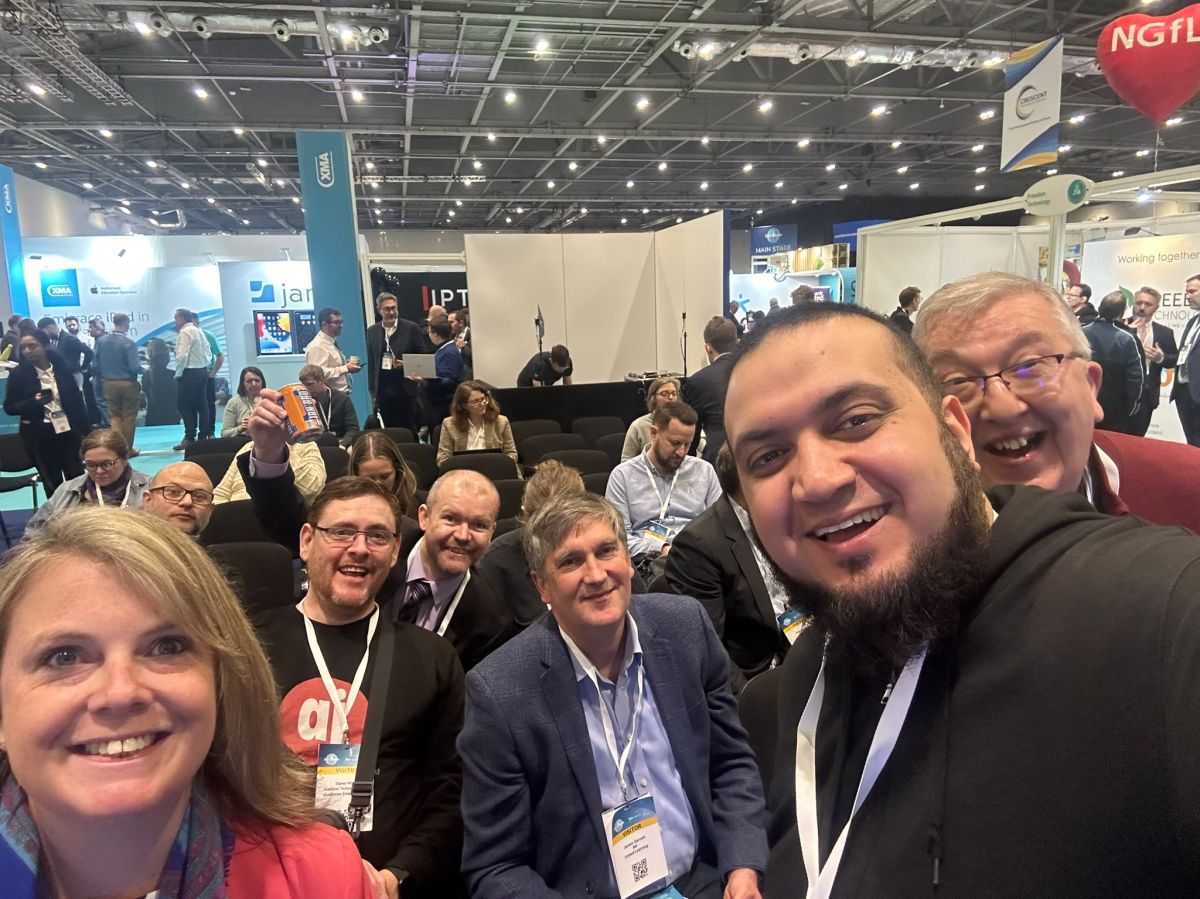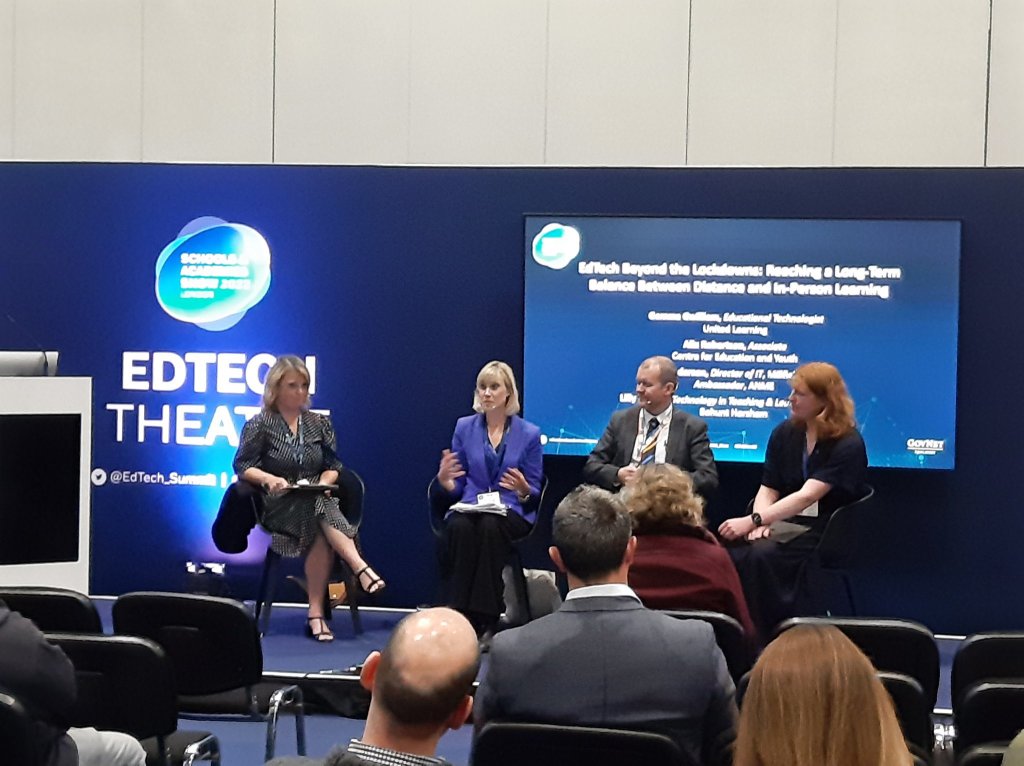It was the Schools and Academies show recently and I was once again fortunate to be given the chance to speak at the event, as well as being given the opportunity to be involved in their hosted leaders events prior to the main show. It was a busy day or so, but equally very useful.
Now the event started with my usual travel woes and my second train being cancelled leaving me looking for a plan B to get to London. Am not sure why these things keep happening to me; Is it bad luck, karma or simply a less than resilient rail network operating in the southwest of England? I suspect there is a bit of everything thrown in. Thankfully I managed to find an alternative route and made my way to London, and I will admit using the Lizzy line meant that I wasn’t too badly delayed when compared with previously using the tube and DLR.
So the hosted leaders event before the main event was fun speaking with a variety of different people outside of my usual EdTech crowd including a head from a school abroad, a school SENCO, a school business manager and someone representing a teachers union. Additionally there was some brilliant music from two students showing off how important the creative arts are.
As to the event itself I have a fair few meetings with vendors in the diary with these being useful and giving me things to take away from the event. This included an impromptu discussion with a company providing a managed telephone service aimed at children, looking to help address the challenge of students with smart devices and keeping them safe. I also met with a well-known interactive whiteboard provider as to some of their recent developments. Additionally, as I walked the show floor I bumped into people resulting in discussions, often also meaning I was less than timely in my attendance at my scheduled meetings; To those I turned up too late, I do apologise.

There were also the usual presentations and panels, although this time I didn’t manage to attend as many of these as I had hoped although I did manage to attend a great session towards the start of the day including both Gemma Gwillam and Neelam Parmar. One session I was annoyed I missed was the session on AI including Sir Anthony Seldon. Oh, and then there was the panel session I was involved in, and speaking at myself, looking at phones in schools and whether we should seek to ban them. I will write more on this session and my thoughts in the near future. It was interesting on reflection that as a panel we were generally in agreement as to the direction of travel in the need to manage phones rather than ban, and also on the importance of education of students and of parents. The fact the “ban phones” discussion keeps coming up is frustrating given how long it has been discussed however the panel, in my opinion, seemed to show that progress has been made and that many are adopting a more pragmatic and context-driven approach rather than a blanket ban; This for me is good news. I will however note that I am not sure if a panel who are all in agreement is a good thing, or maybe we are an echo chamber? And maybe this is exactly the challenge facing our children, and more broadly society, is the balance between binary arguments and polarisation, and echo chambers and constant reinforcement of current viewpoints. How do we reach balance? The chair did try to stir things up by asking what we would do if research did establish a negative causal effect of smartphones on learning, however in the social sciences I think proving such a causal link is nearly impossible as there are simply too many variables at play.
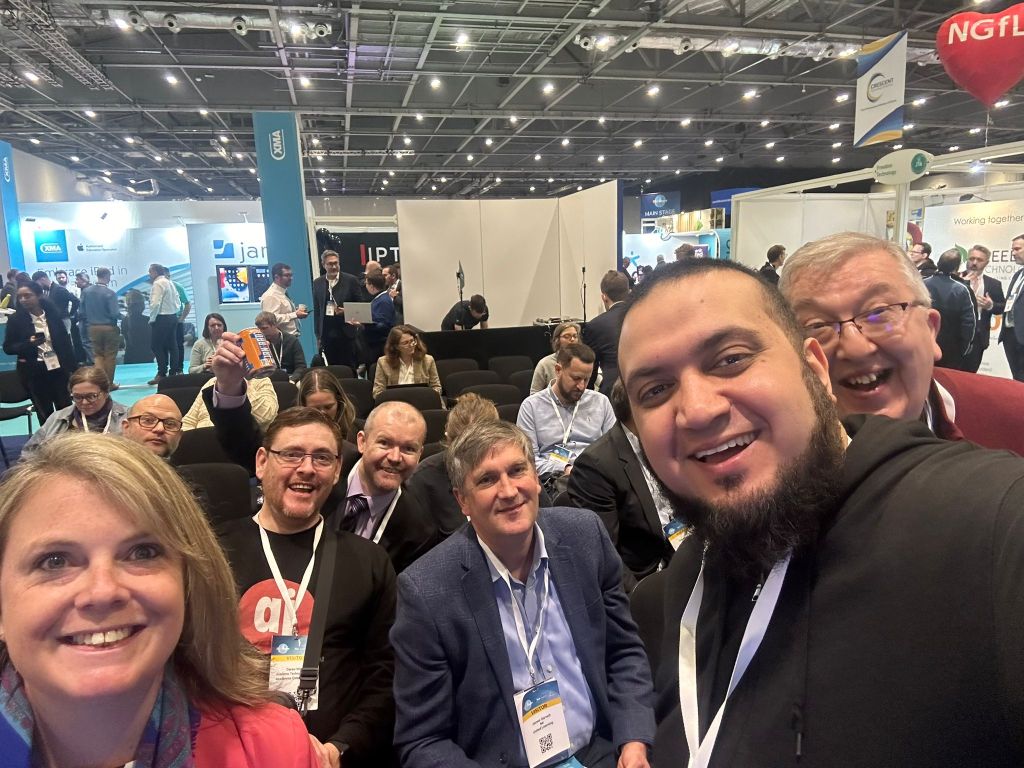
One thing that made this event stand out for me was the DFG (Digital Futures Group) and being involved in the Schools and Academic Show alongside such valued colleagues as Gemma Gwilliam, James Garnett, Darren White and Abid Patel. The Schools and Academies Show actually saw the DFG officially announce our launch and I look forward to some exciting times ahead with the group and in the lead up to the EduTech Europe event later in the year.
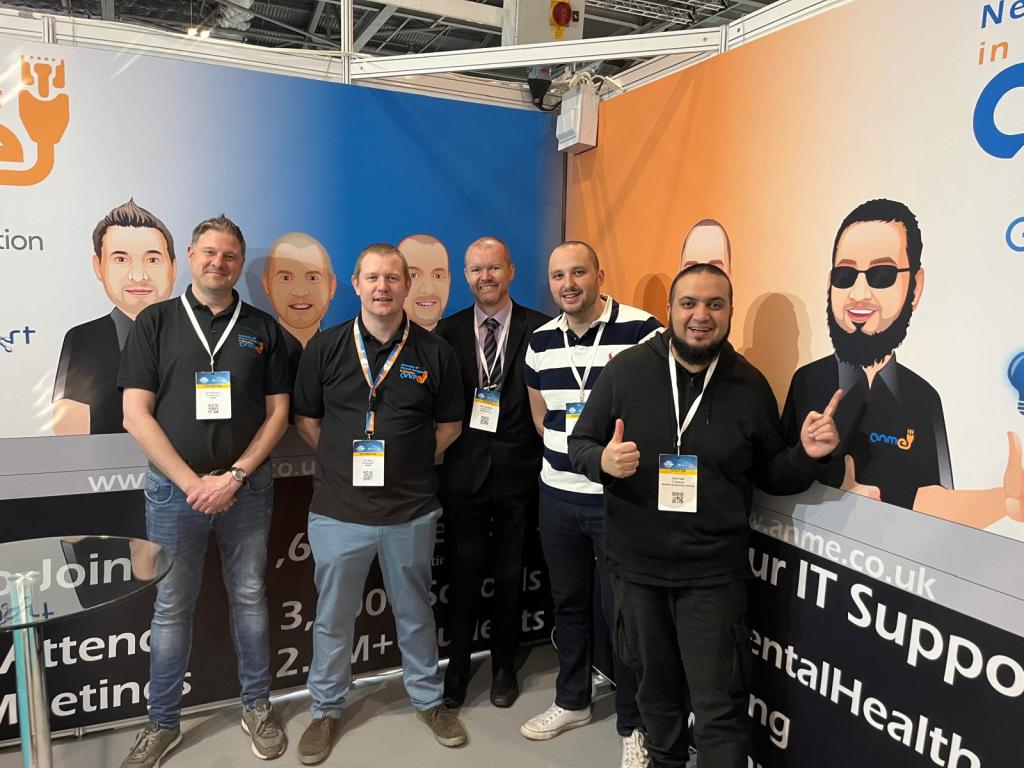
Also, it was great to catch up with the team from the ANME as well although I did not spend as much time with them and on the ANME stand as I would have liked. As a group they continue to offer the IT staff in schools and colleges a source of support, help and guidance which is all the more important as technology use increases and given the challenges associated with IT roles which often operate invisibly to the school except when things are going wrong.
In terms of both the DFG and ANME, the quote I so often use, from David Weinberger, is “the smartest person in the room is the room”, and the DFG and the ANME mean I benefit from being part of a very big room, and hopefully am all the better for it.
And if I am looking at the bucket list then this is the first conference I have ever been thrown out off! And no it wasn’t due to poor behaviour, or controversial views or similar but due to the fact myself and others were so engaged in discussion post-event that the security staff felt the need to (rudely) force us to leave. Apparently there were issues with public liability as we stood continuing our discussions.
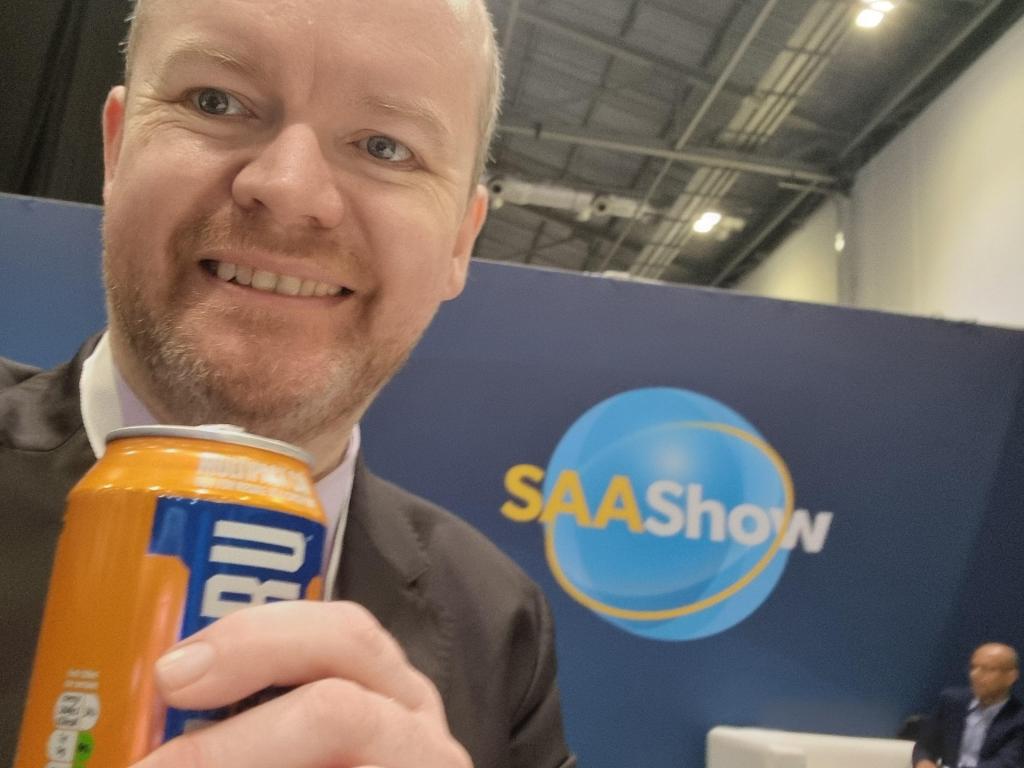
Oh and also I temporarily found myself drink an orange substance that wasn’t the amber nectar, the Irn Bru. The photo of me during the panel sessions provides evidence of this although the app for the event listed me twice so maybe the non-Bru drinking Gary was actually a doppelganger. It was a shock to the system but I promise all that normal service was promptly resumed and upon returning home I will drink many cans of the Bru to clear my system of the non-Bru liquid!
So, I write this on the train heading back to somerset, and a three hour trip, all being well which with me is far from guaranteed. (additional note: On the return leg, my second train looked like it was going to be cancelled however did turn up just a little late; that had me worried as the following train wasn’t until 1hr later and it was already 930pm). So onwards to my next set of events, and what has so far been a very busy 2024; Better busy than bored, plus sharing and networking continue to enrich my professional development way beyond any CPD course I have ever attended.
Maybe the DFG and ANME are the model more people should adopt in forming groups, sharing, collaborating and growing together, across different educational sectors and contexts.


